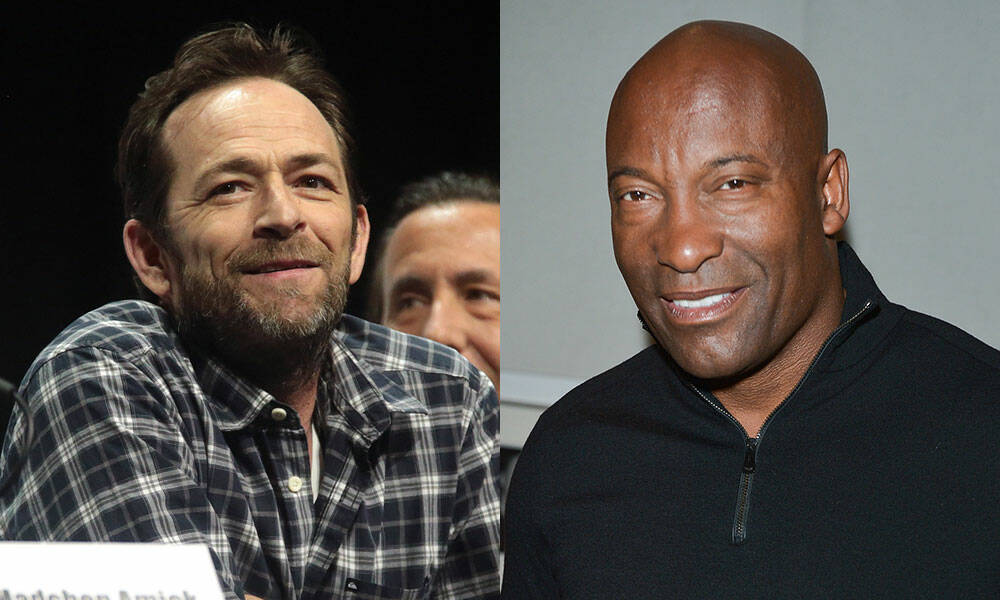
Associations Urge Awareness of Stroke Risk After Recent Celebrity Deaths
The American Heart Association and American Stroke Association are amplifying their public health messaging after the recent deaths from stroke of John Singleton and Luke Perry.
Before famed director John Singleton was taken off life support Monday, Singleton’s family made a notable request to the public.
“More than 40 percent of African American men and women have high blood pressure, which also develops earlier in life and is usually more severe,” a statement from the family said. “His family wants to share the message with all to please recognize the symptoms by going to Heart.org.”
The deaths of Singleton and Beverly Hills, 90210 star Luke Perry—both from stroke, both in their early 50s—have brought fresh attention to the second-most-common cause of death in the world and to the prevention resources available from the American Heart Association (AHA) and its offshoot, the American Stroke Association (ASA).
Stroke can affect people of any age. Know your risk factors, and learn the F.A.S.T. warning signs: Face drooping, Arm weakness, Speech difficulty, Time to call 911. via @CNN https://t.co/RdGp4VjfcO
— American_Stroke (@American_Stroke) March 5, 2019
After Perry died in March, AHA and ASA stressed that the incidence of stroke is not confined to the elderly.
“Luke Perry’s tragic death highlights the fact that stroke can affect middle-aged and young adults, even children,” Mitchell S.V. Elkind, M.D., M.S., chair of ASA’s advisory committee, said in a news release. “In fact, there is evidence that stroke rates among young people are increasing in the United States, and this requires additional research. While we don’t know the cause of Perry’s stroke, it’s important for people to know the risk factors for stroke.”
The statement listed risk factors including smoking, high blood pressure, diabetes, and a family history of stroke, among others.
After Singleton was removed from life support, ASA tweeted a similar message.
Our hearts go out to John Singleton's loved ones today. A stroke can strike unexpectedly. Learn the warning signs FAST: https://t.co/xdgSjauL5x
— American_Stroke (@American_Stroke) April 29, 2019
-Face drooping
-Arm weakness
-Speech difficulty
-Time to call 911 https://t.co/Hm3BD3cL2R
Celebrities and Public Health
Celebrity health issues, from diagnoses of serious illnesses to deaths, often raise public awareness and response in a way that that typical messaging by public health advocates may not.
A 2017 study found that the use of in-home HIV testing kits soared after actor Charlie Sheen announced that he had been diagnosed as HIV-positive. According to CNN, an earlier study led to Sheen increasing his public health messaging. Even loved ones of a celebrity can play an important role: Susan Schneider Williams, for example, has worked with multiple brain health groups since the death of her husband, Oscar-winning actor Robin Williams.
Speaking to CNN, San Diego State University research professor John Ayers, who coauthored both studies, noted that celebrity voices—or those of their families—can feel more authentic than messages from public health experts.
“These messages, they come from the bottom; they come from ordinary people. People who aren’t health experts,” Ayers said. “Sheen might be a celebrity, but he’s not a health expert. Angelina Jolie is not a health expert.” In 2013, Jolie spoke openly about her healthcare decisions—including to undergo a double mastectomy—after she learned she carried the gene mutation known to drastically increase the risk of breast cancer.
The American Stroke Association website has a variety of resources about stroke prevention, response, and the warning signs to look for, using the acronym FAST (face drooping, arm weakness, speech difficulty, time to call 911).
Luke Perry, left, and John Singleton. (Left: Gage Skidmore/Flickr; Right: George Pimentel/Flickr)






Comments